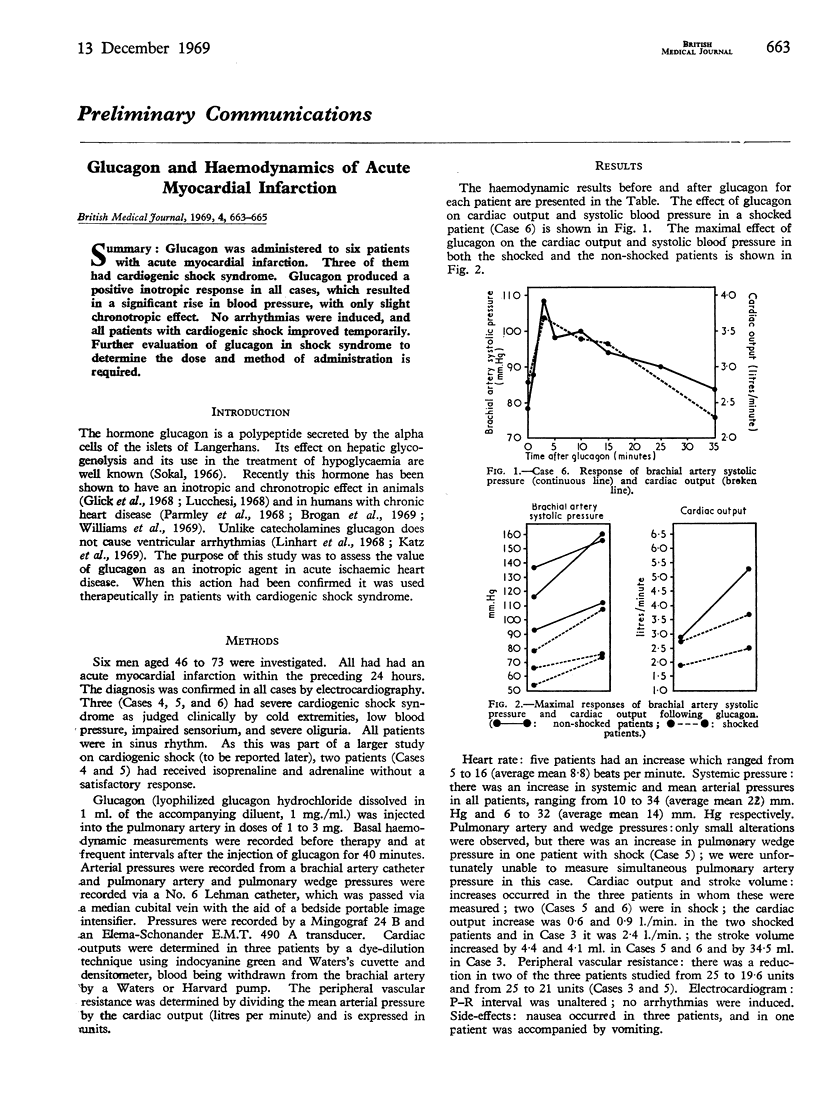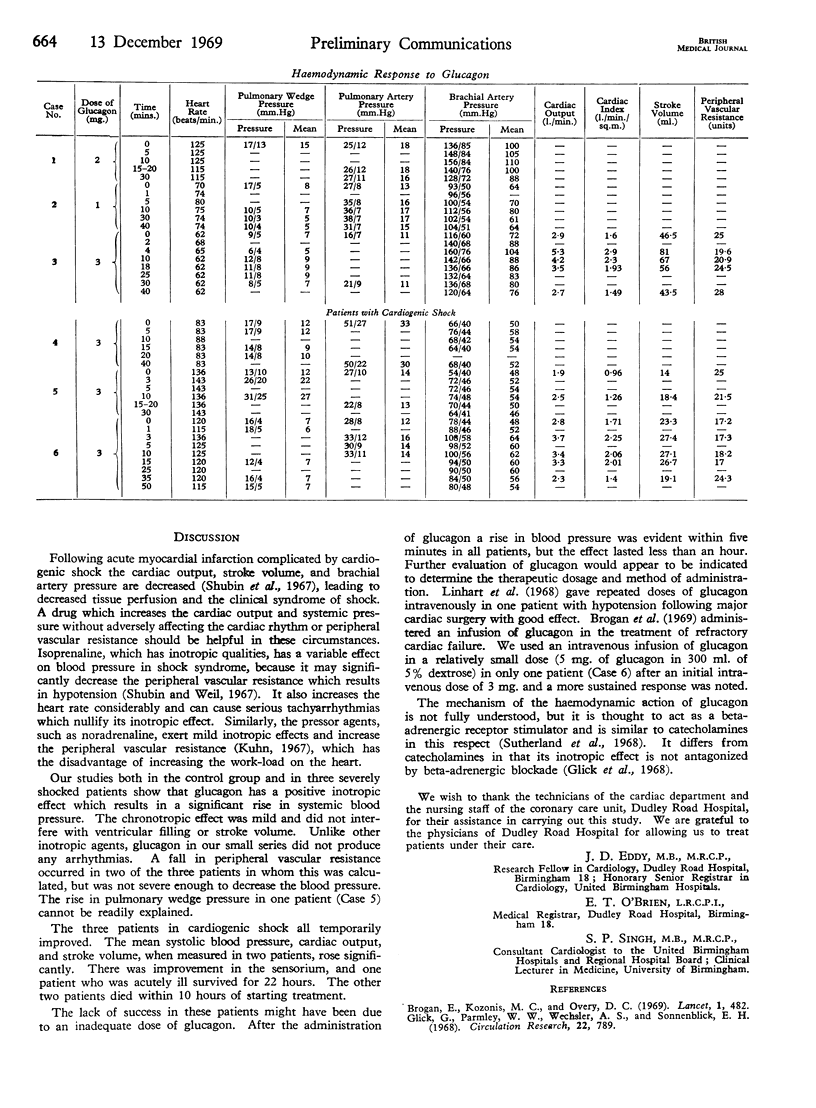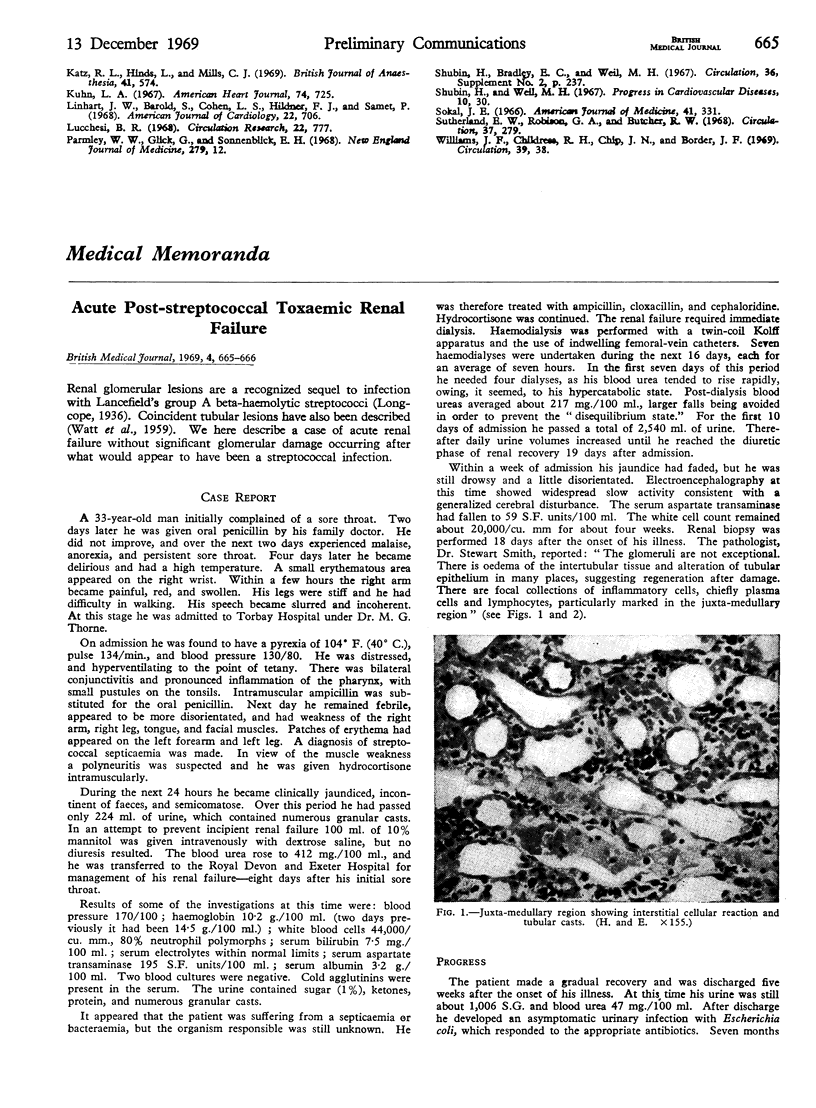Abstract
Glucagon was administered to six patients with acute myocardial infarction. Three of them had cardiogenic shock syndrome. Glucagon produced a positive inotropic response in all cases, which resulted in a significant rise in blood pressure, with only slight chronotropic effect. No arrhythmias were induced, and all patients with cardiogenic shock improved temporarily. Further evaluation of glucagon in shock syndrome to determine the dose and method of administration is required.
Full text
PDF


Images in this article
Selected References
These references are in PubMed. This may not be the complete list of references from this article.
- Brogan E., Kozonis M. C., Overy D. C. Glucagon therapy in heart-failure. Lancet. 1969 Mar 8;1(7593):482–484. doi: 10.1016/s0140-6736(69)91587-6. [DOI] [PubMed] [Google Scholar]
- Glick G., Parmley W. W., Wechsler A. S., Sonnenblick E. H. Glucagon. Its enhancement of cardiac performance in the cat and dog and persistence of its inotropic action despite beta-receptor blockade with propranolol. Circ Res. 1968 Jun;22(6):789–799. doi: 10.1161/01.res.22.6.789. [DOI] [PubMed] [Google Scholar]
- Kuhn L. A. The treatment of cardiogenic shock. II. The use of pressor agents in the treatment of cardiogenic shock. Am Heart J. 1967 Nov;74(5):725–728. doi: 10.1016/0002-8703(67)90511-x. [DOI] [PubMed] [Google Scholar]



